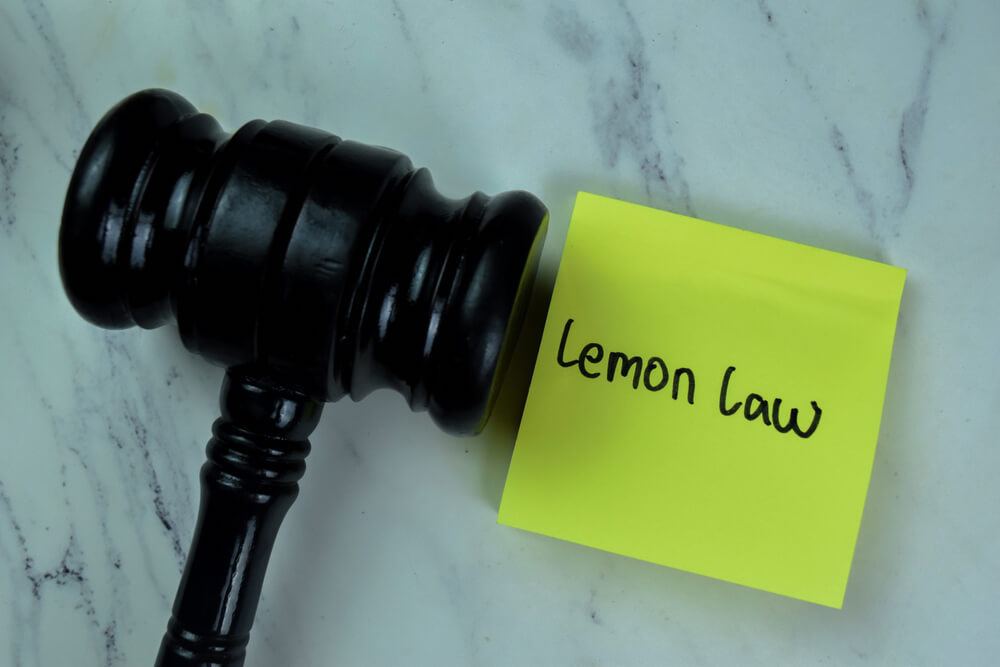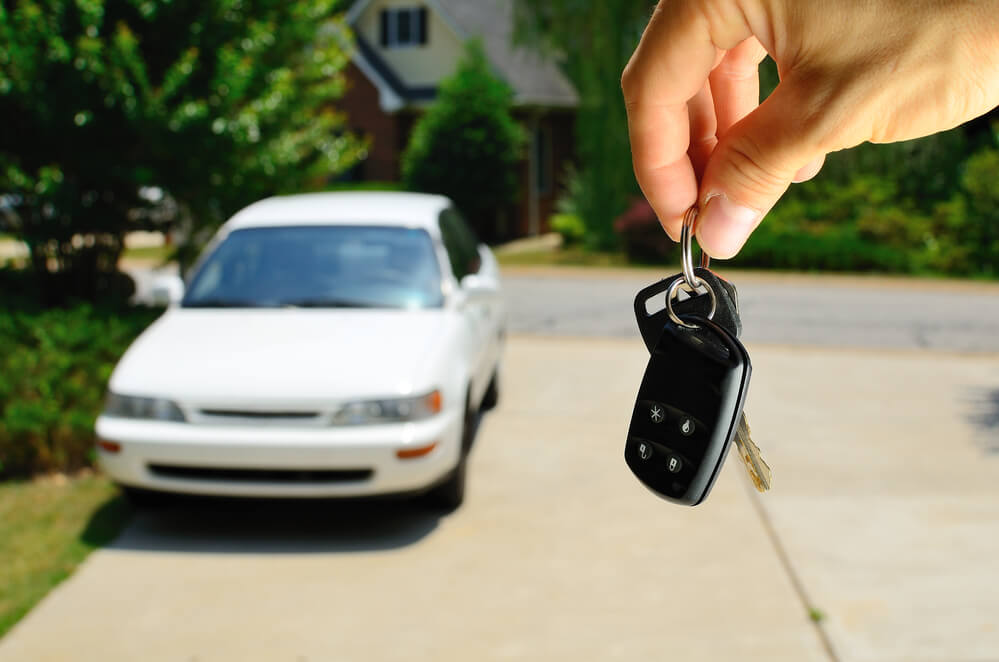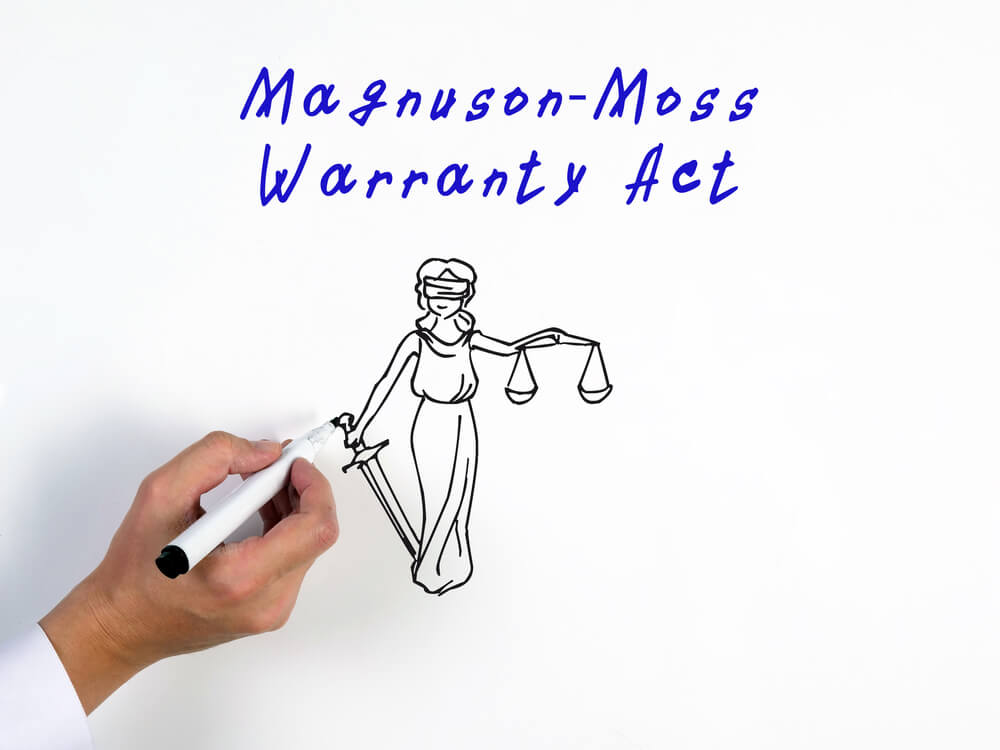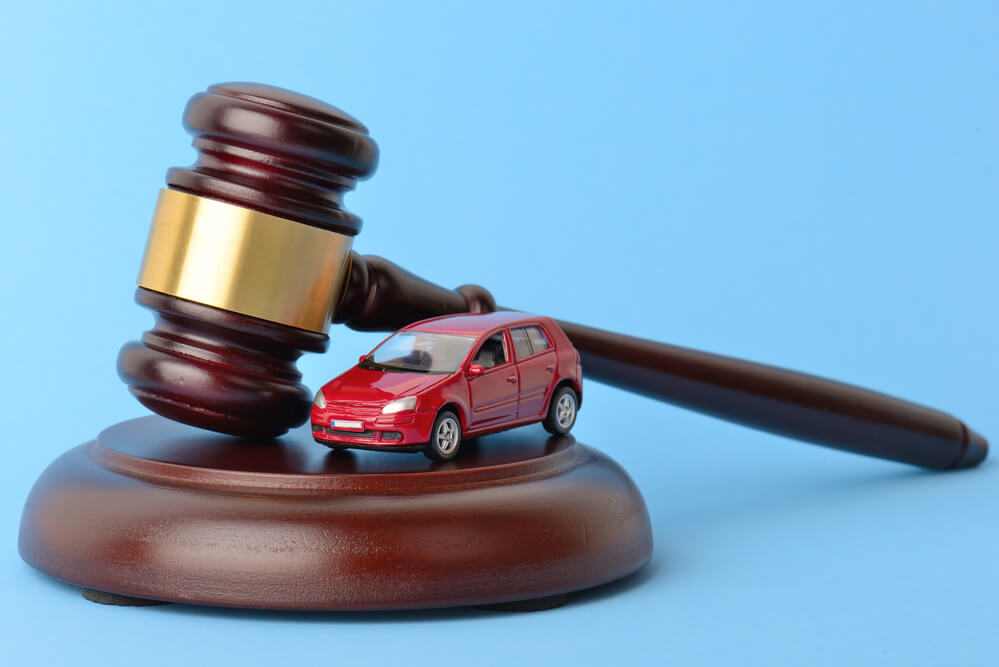The Lemon Law in Florida was established to recognize and provide a resolution for motor vehicles that are defective directly from a manufacturer. Chapter 681 of Florida Lemon Law, states that out of good faith, motor vehicle companies are responsible for complaints against the motor vehicle warranty to be resolved within a designated period of time. All vehicles that can be considered “lemon vehicles” must have been purchased from a certified Florida dealer.
Find out Now if you have a case. No fee, no obligation. Call 786-297-8977.
In the event that you might be experiencing issues with your vehicle, there must have been at least three unsuccessful attempts by the manufacturer or authorized service center to fix a warranty covered problem, these are looked upon by Florida law as the above-stated “reasonable number of attempts at repair”. If your vehicle is out of service for accumulation of days because of efforts to repair a problem you are entitled to have your vehicle presumed as a lemon.
The state of Florida’s Lemon Law policies typically cover new vehicles that have been purchased. There are a few limitations to what can constitute a “lemon vehicle” according to Florida Lemon Law legislature including; trucks that weigh more than 10 thousand pounds, motorcycles, RV’s used for housing, and a few others.
Get a Free Case Evaluation
The Ultimate Guide to Florida Lemon Law

Table of Contents
- How Does the Florida State Lemon Law Work?
- What Isn’t Covered by the Florida Lemon Law?
- Lemon Law Rights Period
- The Magnuson-Moss Warranty Act: The Federal Lemon Law
- Making a Florida Lemon Law Claim
- Compensation For Consumers
- Tips to Avoid Purchasing a Lemon
- What Defects Are Covered Under the Lemon Law?
- Florida Lemon Laws: Impact on Manufacturers
- What Is the Motor Vehicle Arbitration Board?
- What Is the Lemon Law Fee in Florida?
- Contact an Experienced Lemon Law Lawyer Today
- Florida Lemon Law Statute: “The Motor Vehicle Enforcement Act” – Read full Lemon Law Statute
- Florida Lemon Law FAQ’s
When you purchase a new car, you expect to pay more than you would for a secondhand car. If you’re like many drivers, you view the added expense of purchasing a new vehicle as money well spent to ensure you aren’t buying a car with issues affecting the mechanical, structural, or electrical systems.
There are numerous reasons to consider purchasing a new car, even though you’ll pay more than you would for a secondhand vehicle. After all, you won’t have to worry about whether cars you are interested in have received routine maintenance, whether trucks have excessive wear from being used as off-road vehicles, or if a recreational vehicle you like has damage that substantially impairs its use. A slightly higher purchase price is a fair trade-off for peace of mind when you climb behind the wheel and have confidence that you won’t end up stranded on the side of the road or have to spend your time and money getting your new motor vehicle repaired.
Unfortunately, sometimes even purchasing or leasing a brand-new car from a manufacturer or its authorized dealer isn’t enough to get you a reliable vehicle. You could end up with a defective car from a franchised motor vehicle dealer, even when you purchase a new vehicle. This possibility is understandably horrifying to buyers. The idea that you could spend your hard-earned money on a “lemon,” the colloquial term for a vehicle that doesn’t work correctly, is terrifying.
Luckily the Florida Lemon Law exists to protect drivers from being left paying for defective vehicles. It serves as a form of protection for consumers, preventing them from being saddled with repair bills when they purchase a car with manufacturer’s defects.
Every state has some form of lemon law, but the specifics of the laws and the situations they cover vary. For example, in some states, their lemon laws cover only new vehicle purchases, and in others, their lemon laws extend to new, used, and leased motor vehicles. What defects must be present in a motor vehicle to label it a lemon also slightly varies from state to state, but the standards for motor and recreational vehicles established by most lemon laws dictate that the flaws must be severe enough that they substantially impair the vehicle’s function and cannot be repaired by the manufacturer or its authorized service agent within a set number of attempts or timeframe.
The Florida Lemon Law recognizes that a motor or recreational vehicle is a significant consumer purchase, and buyers are entitled to a properly working vehicle. The official name of the Florida Lemon Law is the Motor Vehicle Warranty Enforcement Act.
This law requires manufacturers to fix defects promptly or offer a replacement vehicle if the vehicle cannot be repaired. If you have purchased a new or demonstrator car and discovered a nonconformity, you can find the manufacturer’s contact information and how to file a claim in your manufacturer’s warranty.
How Does the Florida State Lemon Law Work?

When you purchase a new or demonstrator vehicle, you have the right to expect that the vehicle you are buying meets expected standards for safety and function. Should the car not live up to those standards, the Florida Lemon Law protects you and provides recourse to seek repairs or a replacement vehicle from the manufacturer.
Even though many consumers know they will need to deal with the dealership to resolve their problem, they feel unsure how to proceed if the dealer cannot rectify the situation. The Florida Lemon Law recognizes that a vehicle is a major consumer purchase and offers a straightforward way for consumers to pursue a resolution from the vehicle’s manufacturer directly.
Defects and Recalls
Vehicle defects that are the fault of the dealership or manufacturer are legally referred to as nonconformities. Nonconformities substantially impair your vehicle’s use, safety, and value and effectively limit your ability to utilize it for its intended purpose or resell it for a reasonable price. Such motor vehicle defects are typically significant issues, like transmission problems, structural flaws, or a faulty fuel system.
Recalls count as defects under the Lemon Law in Florida, but the manufacturer is still allowed a reasonable number of attempts to remedy the issue. Since the Florida Lemon Law rights period only extends for 24 months after the consumer has taken possession of the vehicle, recalls occurring outside that window will not fall under the umbrella of issues addressed by the Florida Lemon Law. However, other acts and laws designed to protect consumers will hold manufacturers responsible if they do not address flaws that constitute a recall.
The Florida Lemon Law states that you are entitled to have these nonconformities addressed, and you must allow the manufacturer to repair the nonconformities at a reasonably accessible repair facility. If, after a reasonable number of attempts, the nonconformity still poses a problem, the manufacturer must buy back the vehicle or provide you with a replacement vehicle of equal value.
Contrary to common belief, you do not have to accept the replacement vehicle; you can choose to receive a refund instead. However, remember that the manufacturer may deduct a reasonable amount from the refund to account for your use of the vehicle.
Vehicles Covered
Only new and demonstrator vehicles are covered under the Florida Lemon Law. A demonstrator vehicle is one that drivers can test drive when they visit a dealership to see if they are interested in purchasing that car model. These cars may also be used for promotional events or for dealership staff to drive for marketing purposes. Although these vehicles can have higher mileage than brand-new cars, since demonstrator vehicles have never been registered with the state, they are sold as if they are new cars.
Vehicles must also be purchased from an authorized service agent (a car dealership). While some states have lemon laws that cover the purchase of used cars, the Florida Lemon Law does not. Purchases from private sellers are also exempt from the Motor Vehicle Warranty Enforcement Act. However, the Magnuson-Moss Warranty Act, also known as the Federal Lemon Law, covers circumstances the Florida Lemon Law does not and offers a way for consumers to seek compensation for vehicle issues beyond the scope of a state’s Lemon Law.
Leased vehicles may be covered under specific circumstances if they are demonstrators or new vehicles. For a leased vehicle to be covered by the Florida Lemon Law, the lease must be for a year or longer, with the lessee being responsible for any repairs the vehicle needs during the lease. Also, if the lease is part of a lease agreement that results in vehicle acquisition by the lessee, the vehicle may be covered.
What Isn’t Covered by the Florida Lemon Law?

If you purchase a vehicle for resale, the Motor Vehicle Warranty Enforcement Act will not protect it. Mopeds, motorcycles, and scooters are not covered, nor are off-road vehicles. Trucks over 10,000 pounds and vehicles that are built only to be driven on tracks are also exempt.
Even though the Florida Lemon Law covers recreational vehicles, it doesn’t include the living areas of these vehicles. Living spaces in recreational vehicles are defined as parts of the vehicle used primarily for dwelling that would not be found on a standard personal use vehicle. The following components are typically not covered under the Florida Lemon Law:
- Exterior compartments
- Furnace
- Generator
- Non-automotive electric components
- Roof air conditioner
Florida’s Lemon Law doesn’t cover modifications or alterations made to a motor vehicle by an unauthorized party. For example, an unauthorized party’s installation of after-market equipment, such as a lift kit or custom suspension packages on a previously assembled truck, is not covered.
The only exception is if the manufacturer or authorized service agent completed the modifications or alterations using approved components. The service agent does not have to be the dealership where you purchased the vehicle. Still, they must be authorized through the vehicle’s manufacturer to perform modifications or routine maintenance on their vehicles.
Lemon Law Rights Period

The “Lemon Law Rights Period” is the first 24 months following the date the buyer received the vehicle. In situations where the buyer purchased the vehicle, and it was not delivered until a later date, the Lemon Law rights period begins once the vehicle has been delivered to the customer.
If a nonconformity does not present within the first 24 months following delivery, the buyer cannot seek compensation or repair from the authorized agent or manufacturer under the Florida Lemon Law because it is outside the Florida Lemon Law rights period. Remember that you may still have other avenues to seek justice outside of the state Lemon Law.
The Florida Lemon Law states that a customer must contact the dealer or manufacturer within the Lemon Law rights period if they want the chance to seek repair or replacement for their defective vehicle. This time limit is enforced because, after a certain period, it becomes challenging to tell if a faulty vehicle’s issues are caused by a manufacturer flaw or normal wear and tear on the vehicle. Since the Florida Lemon Law only covers vehicles with defects unrelated to use or accidents, it’s essential to report any nonconformities to the manufacturer or its authorized service agent immediately to ensure you create a paper trail of seeking repair inside the Lemon Law rights period.
When a new or demonstrator vehicle is transferred from one buyer to another within the 24-month window, the second party may be covered by the Florida Lemon Law. However, for such motor vehicles to fall under the protection of the law, both owners must have utilized the vehicle for personal use and report any issues within the Lemon Law rights period.
The Magnuson-Moss Warranty Act: The Federal Lemon Law

If limitations in the Florida Lemon Law prevent you from seeking justice, you will want to talk to a Lemon Law attorney about whether pursuing a resolution under the Federal Lemon Law is the right choice for your circumstance. In situations where the Florida Lemon Law rights period prevents you from seeking a replacement vehicle or compensation from an authorized service agent or manufacturer, the Federal Lemon Law extends the window of time you have to seek a solution. It also makes filing a breach of warranty claim against a manufacturer a more straightforward process.
This law also allows consumers to recover reasonable attorney’s fees incurred while pursuing resolution, court costs, and other associated expenses if the claim is successful. Other related expenses could include compensation for aggravation and payments made to a rental car company while yours was in an accessible repair facility.
Also known as the Magnuson-Moss Warranty Act, the Federal Lemon Law was enacted by Congress in 1975 to protect consumers and oversee the content and regulation of warranties on consumer products. It outlines the parameters allowed on a manufacturer’s written express warranty on their product and moderates the provisions that can be put on implied warranties. This act covers recreational vehicles and warrantied components of recreational vehicles.
The Magnuson-Moss Warranty Act states three requirements that must be honored by a product’s manufacturer, warrantor, or seller. First, a written warranty must be labeled “full” or “limited” for consumers’ conspicuous notice upon viewing the warranty.
Second, a written warranty must clearly state the coverage they offer in terms that are easily understandable. Finally, a written warranty must be available for consumers to access wherever the warrantied product can be purchased.
Outlining Dealer’s Vehicle Sales Requirements
Unlike the Florida Lemon Law, the Federal Lemon Law applies to a consumer claim arising from one or more nonconformities on a used vehicle purchased from an authorized service agent. Used vehicles purchased from private parties also qualify, as long as they are still eligible under the manufacturer’s warranty. The Federal Trade Commission (FTC) Used Car Rule requires dealers to show a buyer’s guide in every secondhand vehicle for sale. In this guide, buyers can find the information they need to make an informed purchase, such as if the car has a warranty, the major electrical and mechanical components on the vehicle, and things to look out for that could substantially impair the vehicle.
The Magnuson-Moss Warranty Act also states manufacturers must service motor vehicles if flaws are found while the car is under warranty. Once faults have been reported, the manufacturer must remedy the issue, even if the warranty expires while the vehicle is still in a reasonably accessible repair facility receiving repairs.
Lemon Laws claims involving used vehicles can be even more challenging to navigate than claims involving new cars. If you find yourself dealing with nonconformities on a used vehicle you purchased that is still covered by the manufacturer’s warranty or the Federal Lemon Law rights period, you’ll need to consult with a lawyer about your situation.
Your lawyer will review the details of your unique situation and let you know if you have a solid case to make a lemon claim against the manufacturer. Whether you purchased your vehicle new or used, you deserve to receive a vehicle that lives up to what you were legally promised. Jonathan D. Schwartz understands the frustration this can cause and will go above and beyond to secure you the best possible resolution under state and Federal law.
Reach out and discuss the specifics of your case in a free case evaluation designed to give you the information you need to make an informed decision about your faulty vehicle. If you are unhappy with the outcome of your attempts to resolve your vehicle’s flaws, you need a professional looking out for your best interests.
Making a Florida Lemon Law Claim

As a consumer who has purchased a motor vehicle primarily designed for personal use, you have rights under the Florida Lemon Law. Unfortunately, preserving your rights and receiving compensation can be an uphill climb. As soon as you realize you are dealing with a lemon or the authorized service agent begins to make the process of seeking a resolution challenging, you’ll want to seek legal guidance.
Choosing to consult with a Florida Lemon Law attorney is one of the wisest choices you can make while navigating the frustrating process of dealing with a faulty motor vehicle. Although the authorized service agent is supposed to make things right if they cannot fix the issue within a reasonable number of attempts, sometimes the service agent won’t behave appropriately and may put off properly repairing your vehicle or try to pressure you into bringing it in for repairs over and over again with nothing to show for it.
If you are like many consumers, going toe-to-toe with a manufacturer or its authorized service agent isn’t something you feel comfortable doing. In addition to the frustration you may experience trying to reach a resolution with the dealer, it can also be a time-consuming process that cuts into time that would be better served elsewhere. A Lemon Law lawyer will simplify this stressful process and ensure you get the best possible outcome for your scenario.
Act Quickly
When you realize you are having issues due to one or more nonconformities with your vehicle, you will want to reach out to the manufacturer or its authorized service agent within the Florida Lemon Law rights period. The manufacturer or its authorized service agent is entitled to make a reasonable number of attempts to repair your vehicle before you escalate your claim. There are two presumptions for what qualifies as a “reasonable number of attempts.”
The first presumption is that if an authorized service agent has attempted to repair your vehicle three times, but the nonconformities still substantially impair your ability to use your vehicle, you have provided the dealer with a reasonable number of attempts. At the conclusion of the third attempt, if your vehicle is not fixed, you will need to provide the manufacturer with written notification through certified, registered, or express mail.
This written notification allows them one final attempt to adequately repair the vehicle before you pursue a refund or replacement vehicle. The address where you must send this correspondence can be found in your vehicle’s owner’s manual, and you can use a Motor Vehicle Defect Notification form to state the issue you are having with your vehicle.
Once the manufacturer has received your written notification, they will have ten days to guide you to a reasonably accessible repair facility. After your vehicle is delivered to the facility, they will have ten days to fix the problem.
Alternatively, if your vehicle must be brought in to the dealership’s repair shop for one or more defects for 15 cumulative days (excluding routine maintenance prescribed by the owner’s manual), you will need to send written notification via certified, registered, or express mail to the vehicle manufacturer. Just as in the previous scenario, you must give the manufacturer or its authorized service agent a final opportunity to evaluate and correct the vehicle. In the event your vehicle is unusable for 30 or more cumulative days because it is being repaired for nonconformities, you may be eligible for a refund or replacement vehicle.
Consider Arbitration
If the manufacturer fails to address a nonconformity that substantially impairs function within a reasonable number of attempts but will not provide a refund or replacement vehicle, you can seek arbitration. Two arbitration programs may be available to you.
If the manufacturer of the vehicle has an arbitration pilot program certified by the state of Florida, you must submit your dispute there first. Information on whether your vehicle’s manufacturer has a state-certified program can be found in your owner’s manual or manufacturer’s warranty. When an arbitration program is state-certified, that means it meets specific federal and state requirements, not that the state of Florida hosts the program.
If the manufacturer of your vehicle does not have a state-certified program or the state-certified program fails to make a determination within 40 days, the dispute must be submitted to the Florida New Motor Vehicle Arbitration Board. Also, should the dispute be decided in your favor, but you disagree with the manufacturer’s compliance therewith, you will need to escalate your case to ensure the manufacturer is held accountable for their responsibility to you.
Keeping track of your paperwork will make the process of arbitration much smoother. You’ll want to collect your sales receipt, receipts from each attempt at repairing the nonconformity, a copy of the notification letter you sent the manufacturer via registered or express mail, and any other documentation pertaining to the situation.
When in doubt, you’ll want to hang onto your paperwork, even if it’s something as seemingly non-essential as expenses paid to a rental car company authorized by the dealer while your vehicle was in the shop. Having a paper trail allows you to prove your version of events if the manufacturer or dealer tries to shirk responsibility or claim you haven’t given them ample opportunity to repair your vehicle.
Compensation For Consumers

If a consumer can prove that the vehicle they purchased is a “lemon” according to the Florida Lemon Law statutes, compensation can be pursued for expenses the consumer wholly incurred as a result of purchasing the defective motor vehicle. In such a case, manufacturers must supply the following to the consumer:
- The motor vehicle’s purchase price
- Local sales taxes
- Charges for repair services (excluding routine maintenance prescribed by the owner’s manual)
- Costs incurred by one or more nonconformities on the purchased motor vehicle
- Costs incurred by rental vehicles
It’s worth noting that when determining how much compensation the manufacturer will provide, consumers should not expect the purchase price to include the debt from a trade-in vehicle if the original purchase contract involved a trade-in. Refunding the purchase price of the vehicle does not mean the consumer automatically receives the exact amount they paid or the manufacturer’s suggested retail price. Instead, they will be refunded the purchase price less a reasonable offset for use that occurred while the consumer had the motor vehicle.
Most consumers would prefer to avoid purchasing a lemon altogether. While sometimes defects are impossible to catch before purchasing a vehicle, there are steps you can take to lessen the odds that the car you select will be defective.
Tips to Avoid Purchasing a Lemon

One of the best ways to avoid buying a lemon is to pay close attention when test-driving a vehicle you are considering purchasing. Car shopping is exciting, and it’s easy to get caught up in the moment and overlook signs that a vehicle you are considering has major flaws. When a car salesperson accompanies you on the test drive, it can be even harder to spot potential issues because they may distract you, intentionally or unintentionally, from problems you would otherwise notice.
During your test drive, you’ll want to ensure you drive the car at various speeds and on highways and smaller roads. Driving the vehicle at higher speeds on the highway allows you to listen for suspicious noises that can signify alignment or transmission issues. Alternatively, operating a vehicle on smaller roads lets you see how it accelerates and brakes in stop-and-go traffic and if the engine stalls when idling at a red light or stop sign.
Another precaution you should take to help minimize your chance of purchasing a lemon is researching the make and model of the vehicle you are thinking about buying. Certain vehicle manufacturers have a reputation for producing vehicles that often have defects or recalls.
Other manufacturers may have a solid reputation overall but have a specific model of car that consumers frequently report having issues with. Thorough research before heading to the dealership can prevent you from inadvertently buying a model or make of car that is notorious for causing drivers heartache and stress.
What Defects Are Covered Under the Lemon Law?

The Florida Lemon Law applies to new or demonstrator vehicles purchased from a certified dealership. If a new or demonstrator vehicle has a flaw or defect that substantially impairs the use, safety, or value of the vehicle, the buyer may report these nonconformities to the manufacturer or its authorized service agent within the time limit.
These nonconformities can occur due to improper actions taken by whoever assembles motor vehicles for the manufacturer, resulting in a flaw in just one vehicle. Nonconformities can also occur due to design flaws, in which case a whole product line will experience this defect.
Florida Lemon Laws: Impact on Manufacturers
While it may seem counter-intuitive, Lemon Laws actually benefit manufacturers as well as consumers. Before consumers make large purchases from manufacturers, they need to know that they can trust the manufacturer to deliver a quality product or make things right if the product is damaged when the consumer receives it. When consumers feel confident that a manufacturer will be held accountable for providing a working product, they will be more apt to spend their money with a manufacturer.
The Lemon Law also helps manufacturers by establishing clear parameters for defining what makes a motor vehicle a lemon. A “lemon” is the term for a vehicle with one or more nonconformities that hasn’t been repaired after a reasonable number of attempts; a defective vehicle. The guidelines for determining a reasonable number of attempts dictate that one of the situations must apply:
- A consumer’s motor vehicle hasn’t been drivable or has been receiving repairs because of one or more nonconformities for a cumulative 30 days (60 days for a recreational vehicle)
- A consumer’s motor vehicle has been taken in for repair for the same nonconformity three times, and the problem hasn’t been resolved
After either of these situations occur, you must provide the manufacturer with one last opportunity to rectify the flaw before you have legally reached the threshold for a “reasonable number of attempts.” You will inform the manufacturer of your issues by sending a statement detailing the problems with your vehicle and the attempted solutions by certified, registered, or express mail. These parameters keep consumers from being able to demand a refund or replacement vehicle without exploring other options for remedying the problem.
Impact on Consumers
In a perfect world, buyers wouldn’t need the Lemon Law because all new vehicles sold by dealerships would be in good working order. However, as many buyers have learned the unpleasant way, not all new cars drive off the lot problem-free. Whether the vehicle’s issues are unknown by the dealer or the dealer is attempting to pass off a flawed vehicle as being in perfect condition, the outcome is the same for the buyer: a car that doesn’t perform as it should.
The Florida Lemon Law benefits customers by offering them protection and ensuring they have recourse to pursue compensation or a replacement motor vehicle if they unknowingly purchase a vehicle with one or more nonconformities. The Lemon Law also places a cap on the number of times a dealership is allowed to attempt to have the vehicle repaired at a designated repair facility. Limiting the repair attempts to a reasonable number protects the buyer from being caught in a back-and-forth with the dealer and prevents them from having their vehicle constantly out of commission for repair services.
Buyers aren’t the only consumers who benefit from the Florida Lemon Law. Individuals responsible for repairs to a leased motor vehicle pursuant to the lease agreement are also protected. When a leased vehicle has nonconformities, the manufacturer is obligated to rectify the situation. Lessees should not be forced to pay to repair rental vehicles. The Lemon Law allows lessees to avoid paying for repairs they shouldn’t be responsible for, and could enable them to seek reimbursement for the deposit and rental payments previously paid if the vehicle was not drivable for a set amount of time or was not repaired within a set number of attempts.
What Is the Motor Vehicle Arbitration Board?

Consumers who have purchased a motor or recreational vehicle with one or more nonconformities and who have not successfully resolved their issues with the manufacturer or authorized service agent can submit their dispute to the Florida New Motor Vehicle Arbitration Board. However, before consumers can submit a dispute, one of the following conditions must be met:
- The motor vehicle’s manufacturer fails to have an arbitration program that is certified by the state.
- The state-certified arbitration program associated with the manufacturer did not make an official decision regarding your dispute within 40 days of receiving it via certified, registered, or express mail
- You are unsatisfied with the outcome of the manufacturer’s arbitration program and believe it to be unfair
The Florida New Motor Vehicle Arbitration Board consists of members appointed by the Florida attorney general’s office. This board hears cases regarding consumer disputes throughout the state so that consumers can state their disputes at a reasonably convenient location.
To bring your dispute before the Florida New Motor Vehicle Arbitration Board, you must fill out a Request for Arbitration form, which can be found on the website of the Florida attorney general’s office. This form must be submitted within 60 days of the expiration of your Lemon Law rights period or 30 days of the state-certified arbitration program, depending on which date is later.
Once your request has been received, the board will review the dispute to ensure it is arbitration eligible. If your dispute is deemed eligible, the board will hear your claim within 40 days of requesting approval. A final determination will be decided within 60 days of approving your request for arbitration.
In situations where the board decides in your favor, the manufacturer must provide you with a replacement motor or recreational vehicle or a refund. If the board doesn’t settle in your favor, and you wish to object to their decision, you must petition the circuit court in the county where you live, where you purchased the motor vehicle, or where the arbitration occurred. You will only have 30 days to appeal the board’s ruling, so you shouldn’t hesitate if you wish to appeal their decision.
In the event that you decide to petition the circuit court, you’ll want to have a proficient Florida Lemon Law lawyer representing you. The average individual will not have the legal knowledge necessary to effectively petition the court and receive a favorable outcome. Working with a skilled attorney experienced in motor vehicle warranty disputes prevents you from being left with a flawed motor vehicle when the manufacturer doesn’t provide a working replacement motor vehicle acceptable to you or fails to make adequate repairs.
What Is the Lemon Law Fee in Florida?
You may have heard of the “Lemon Law fee” and wondered if it applies to your situation and how much it is. This fee is minor, only $2.00, and must be collected by motor vehicle dealers and others selling or leasing vehicles with a manufacturer’s warranty, new vehicles sold without a manufacturer’s warranty as a condition of the sale, and when leasing a new vehicle under the condition that the lessee is responsible for making repairs to the leased vehicle.
Not all recreational vehicles and sales are subject to this fee. Recreational vehicles are vehicles designed specifically to serve as temporary dwelling spaces for camping, travel, or recreational use. Off-road vehicles, mopeds, motorcycles, and trucks over 10,000 pounds are exempt. New vehicle sales or leases to state, county, or city agencies are also excused.
Contact an Experienced Lemon Law Lawyer Today
When buying or leasing a new vehicle, you do your part by registering your car and paying the seller, which means the manufacturer or its authorized service agent is responsible for holding up their end of the transaction. Don’t be left with an unreliable vehicle when you paid top dollar to experience the peace of mind that comes with purchasing a brand-new car.
A Florida Lemon Law attorney can help you navigate the intricacies of the Lemon Law and ensure manufacturers don’t take advantage of you. Contact Jonathan D. Schwartz today for a free case evaluation and discover how the Florida Lemon Law can help you get the justice you deserve.
Florida Lemon Law Statute: “The Motor Vehicle Enforcement Act” – Read full Lemon Law Statute
Do You Need Assistance With Your Lemon Vehicle?
Contact Jonathan, Your Lemon Law Attorney, Today!

